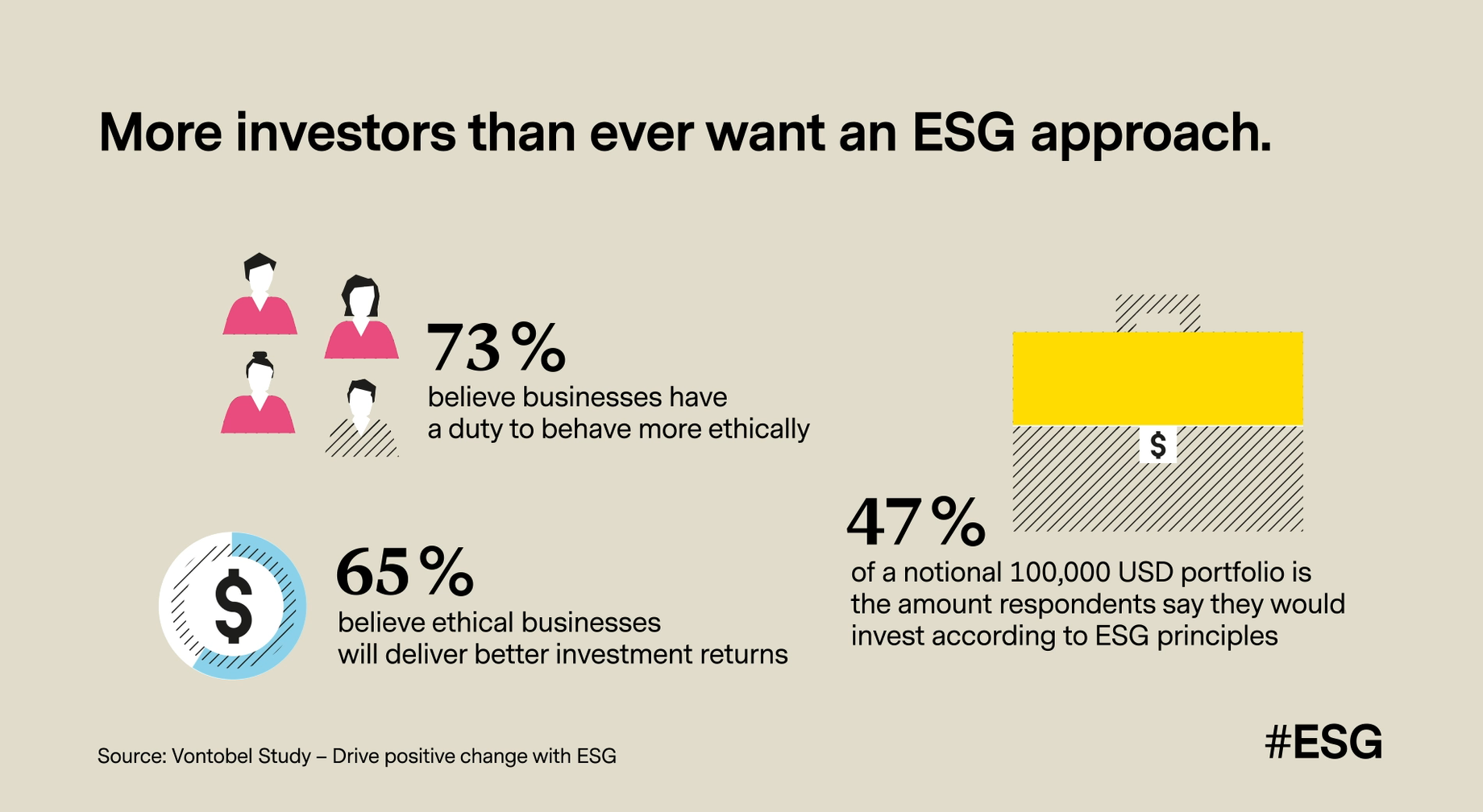Drive positive change with ESG (part 2)
Value-oriented, long-term and sustainable investing is the trend today. Also at Vontobel – but for almost 30 years already. The recent abbreviation “ESG” refers to the use of Environmental, Social and corporate Governance factors to assess companies or countries in terms of their contribution to sustainability.
Up till now, such investment opportunities were in demand mainly from professional and institutional investors. Yet many private investors also consider sustainable investment a convincing approach. What's stopping them from implementing these ideas?
In our 3-part series based on a detailed ESG study by Vontobel, learn how the inclusion of ESG criteria can provide investors with solid arguments to support their investment decisions, and even reduce risks and create new return opportunities.
Did you know that many investors are not applying ESG principles, even though our survey respondents are convinced not only of the importance of ESG, but also of its ability to achieve an impact on their financial decisions and behavior? In Part 2, learn where their inhibitions are, and what errors and misunderstandings need to be clarified.
The good news, according to Thomas Trsan, Specialist for ESG and Impact Investing at Vontobel Wealth Management, is that the range of options is improving. "The investment universe is expanding," he says. "There are more opportunities today than in the past, plus more reporting and ESG-focused analyses issued by research providers, who are also under more intensive competitive pressure."
Willful ignorance
Nonetheless, one of the key factors explaining why only few people take an ESG-focused approach in their investments is the existing knowledge gap on the investor side. More than half of the respondents in our study (55 percent) said they simply did not know that an ESG approach was possible. But even in the group of those more committed to ESG approaches, misunderstandings seem to be widespread. For example, 40 percent were concerned that they would incur additional costs by investing this way, while 21 percent thought their portfolio performance might suffer.

Not just a "nice extra"
In actual fact, however, ESG specialists believe that the performance argument is not applicable. "I can show that a sustainable portfolio can deliver the same market-based performance as a non-ESG portfolio, but with less risk," said Thomas Trsan of Vontobel. Still, many seem to think that as an investment approach, ESG is a "nice extra" – something to take into consideration after you've covered the basic requirements. Almost half of the survey respondents (48 percent) believe they do not have sufficient savings to "afford the luxury of an ESG approach".
Stigmas need to be overcome
Providers of investment products and intermediaries need to work harder to change that attitude, says Carlos Garay of Sabadell. "ESG is part of us: It is part of life, whether you are in the supermarket, checking whether products contain palm oil, or whether your children are planting trees in their daycare center," he says. "The idea has become a social norm and it is definitely here to stay.”
In other words, support for acting in accordance with ESG concerns is already high – and in the future will probably grow even further. In addition, our respondents are beginning to perceive the connection between these issues and the companies in which they might invest.
Here you can find Part 1 of the series.
Order our ESG study
Would you like to find out more about ESG and obtain a condensed overview of our study on what investors are thinking about the topic of sustainable investing? Order it here for free!
